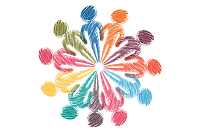Documenting learning can also support media literacy - the understanding and creating of visual messages. Silvia points out that visual images can be "read" for comprehension (meaning making) and inferencing (interpreting and negotiating meaning). Documenting learning is connected to media literacy because the documentation process involves making learning visible to the learner and others. It's important to note that media literacy is not just about reading, writing and creating media - it's also about interpreting, analysing, evaluation and making meaning of the media - and can be tied in with an understanding of digital citizenship.
In PYP schools we also talk about international mindedness. Documenting learning can support global literacy: global competence is defined as the toolkit a productive, involved citizenry use to meet the problems and opportunities of the world. Global competence challenges students to investigate the world, consider a variety of perspectives, communicate ideas and take meaningful action. A curious, inspired student strives to learn more in school and beyond. Local and global inquirers will consider multiple perspectives. Since global refers to somewhere outside of one's locality, students can learn a lot by connecting with others living elsewhere (another city, state or country). This also helps students come to the conclusion that people are more similar than different - so promoting the understanding of human commonalities, and in the words of the IB mission statement that "others with their differences can also be right".
Embracing the "new" or "now" literacies and using these to document learning will help both students and teachers to become both consumers and producers of media.
Photo Credit: Gerd Altmann on Pixabay

No comments:
Post a Comment